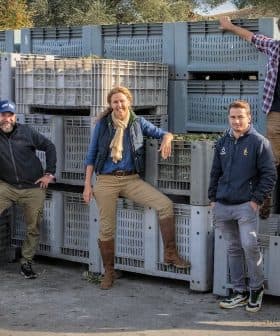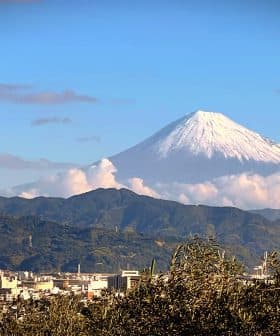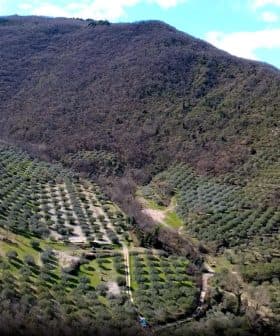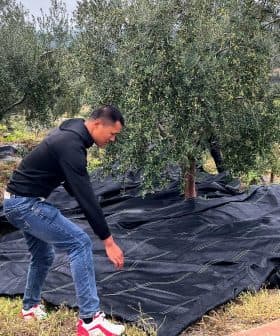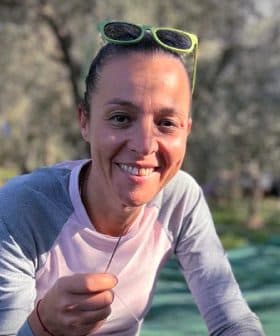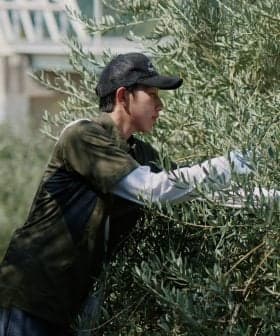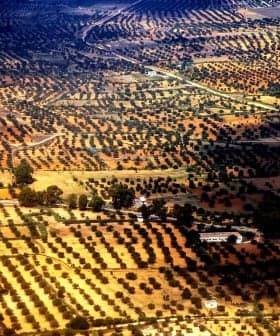Award-Winning Producer on Corsica Stays Optimistic Despite Island's Challenges
The challenges of high-quality olive oil production are accentuated on an island, Emile Borel-Berta told us. Still, the NYIOOC award-winning producer is confident about the future.
 Emilie Borel-Berta (Photo: Sylvain Alessandri)
Emilie Borel-Berta (Photo: Sylvain Alessandri) Scorching temperatures and drought in Europe are impacting olive growers in Corsica, leading to an early harvest this year. Despite challenges, Emile Borel-Berta of Moulin Oltremonti remains optimistic, focusing on collaboration with other producers and plans to expand olive oil production.
Scorching spring and summer temperatures and ongoing drought, which have been the bane of olive growers on the European mainland, are also impacting farmers on Corsica.
“We started our harvest much earlier this year due to the extreme heat and lack of rain, in mid-September instead of early October as we have been used to these last years,” Emile Borel-Berta, an author and the co-owner of Moulin Oltremonti, told Olive Oil Times.
Despite the beauty of our climate and the natural resources which make it a perfect place for olive production, we face the same problems that other farmers face, but more accentuated.
Borel-Berta purchased the farm with her husband, Ivo, in 2008. The estate sits on 35 hectares of rolling hills in Monte, on the east coast of the fourth-largest island in the Mediterranean Sea. On another five hectares, the family runs a modern two-phase mill.
Last year, Moulin Oltremonti produced about 35 tons of extra virgin olive oil. However, Borel-Berta said she suspects the farm will yield far less olive oil this year.
See Also:Producer ProfilesNormally, Borel-Berta cites Corsica’s climate – including plenty of sunshine throughout the year, ample fresh water resources and cool mountain breezes during the summer – as part of what endows her award-winning olive oil with its distinct organoleptic qualities.
However, she acknowledged that climate change was bringing new challenges and opportunities to olive farming and oil production in Corsica, adding to all the existing ones.
“We face the difficulties that every island faces, mainly its isolation,” she said. “Despite the beauty of our climate and the natural resources which make it a perfect place for olive production, we face the same problems that other farmers face, but more accentuated.”
Among the challenges of producing olive oil on an island, Borel-Berta cited higher prices for most goods and services, labor market challenges and political inaction.
Borel-Berta added that another headwind is a lack of consumer understanding of the organoleptic and health benefits of extra virgin olive oil.
“Our task is to overcome these problems,” she said. “Corsica is a natural and largely untouched territory, a place for olive trees to thrive under free and immense skies of blue. Such a task can only bring joy, however difficult it may be.”
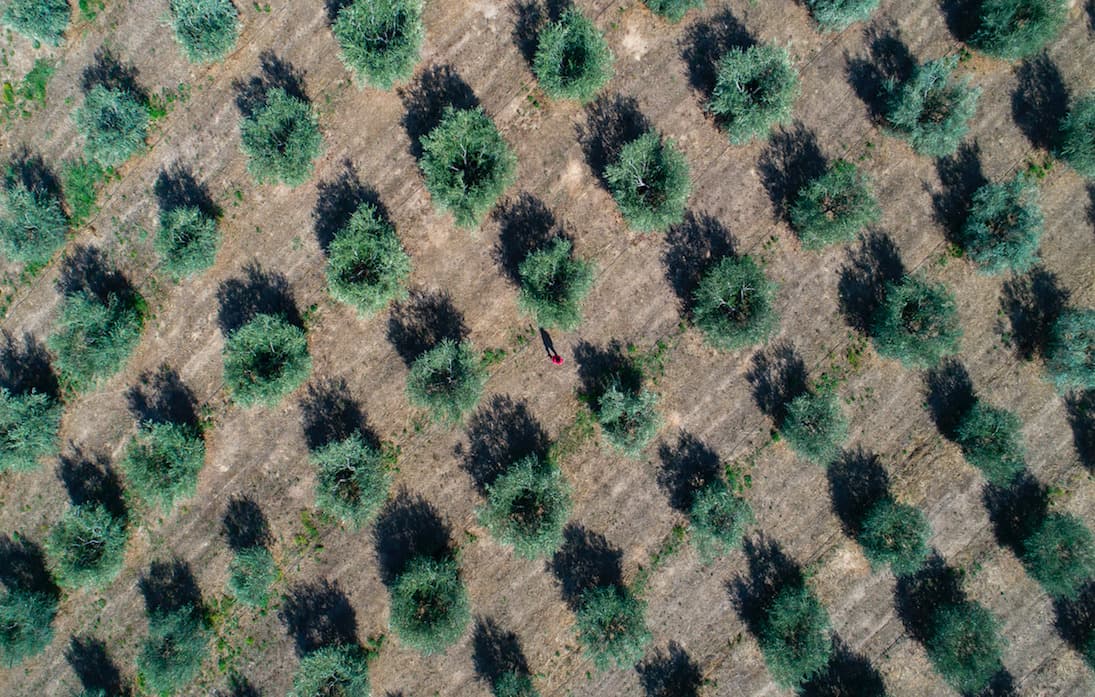
One of the ways Corsican farmers overcome the many hurdles of olive oil production on an island is through collaboration.
Borel-Berta said Moulin Oltremonti runs informational olive oil tasting sessions and helps other producers equip and run their mills.
“It is natural to assist other olive oil producers when you are a professional and multi-award-winner,” she said. “Producers and millers come to us for advice, questions, and problems to resolve. We naturally assist our friends and fellow producers when needed because that has always been how we have been brought up.”
Along with olive oil, the company also produces olive oil-based soap and other beauty products, olive spreads and table olives. However, extra virgin olive oil production is the company’s main focus.
Earlier this year, Moulin Oltremonti’s Athea brand earned the industry’s most prestigious quality award at the 2022 NYIOOC World Olive Oil Competition.
“Our team was thrilled to receive a Gold Award at the NYIOOC,” she said. “This means we should keep up the good work and be in good spirits with increased visibility and sales.”
Borel-Berta crafts her Athea brand from the native Ghjermana di Casinca variety, which is harvested at the end of each autumn, along with Taggiasca and Leccio del Corno olives. She attributed the unique herbaceous aroma and green banana and peppery notes to the combination of cultivar and climate.
Despite the difficulties of the current season, Borel-Berta is optimistic about the future. She is already looking forward to sending fresh extra virgin olive oil to the 2023 NYIOOC and has plans to expand production.
“Our future plans are to plant more olive trees, of course,” she concluded.
Share this article


